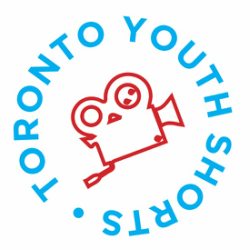In January, Paul Bronfman, the CEO of William F. White International -- Canada's largest provider of movie production equipment -- announced that the company planned to pull its support from York University's Cinema and Media Arts programme due to a mural in the Student Centre that he believes promotes antisemitism. The mural, which has no affiliation with Cinema and Media Arts, depicts a Palestinian man holding a fistful of rocks, watching a bulldozer in the distance. In defense of the painting, Gayle McFadden, Vice President of Operations for the York Federation of Students and Chair of the Student Centre, told the Globe and Mail that "the painting is not antisemitic" but "merely critical of the state of Israel."
As a TYS programmer, I have a practical interest in the debate. We see a lot of great content submitted to the festival each year from York students. I hope they continue to have the resources they need to make good films. I also hope, though, that they continue to make the films they want to make -- whether overtly political or not -- without fear of biting the hand that feeds. Artists have always relied on the generosity of benefactors, whether patrons in the 19th-century or donors and crowdfunders in the 21st, and it remains important for us to be aware of how those relationships have the potential to shape the content we see.
I believe it's possible for us to have a more productive conversation about free speech and hate speech than the one demonstrated. I also believe the arts are one of the best ways in which we can contribute to that discussion.
-Paul
As a TYS programmer, I have a practical interest in the debate. We see a lot of great content submitted to the festival each year from York students. I hope they continue to have the resources they need to make good films. I also hope, though, that they continue to make the films they want to make -- whether overtly political or not -- without fear of biting the hand that feeds. Artists have always relied on the generosity of benefactors, whether patrons in the 19th-century or donors and crowdfunders in the 21st, and it remains important for us to be aware of how those relationships have the potential to shape the content we see.
I believe it's possible for us to have a more productive conversation about free speech and hate speech than the one demonstrated. I also believe the arts are one of the best ways in which we can contribute to that discussion.
-Paul

 RSS Feed
RSS Feed